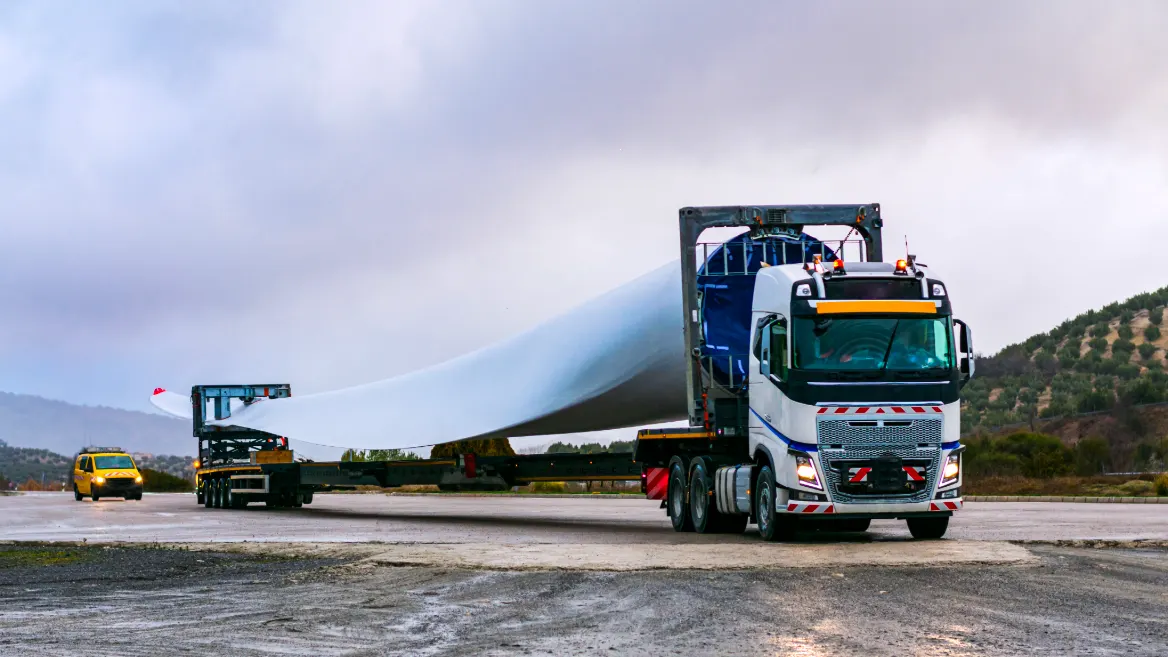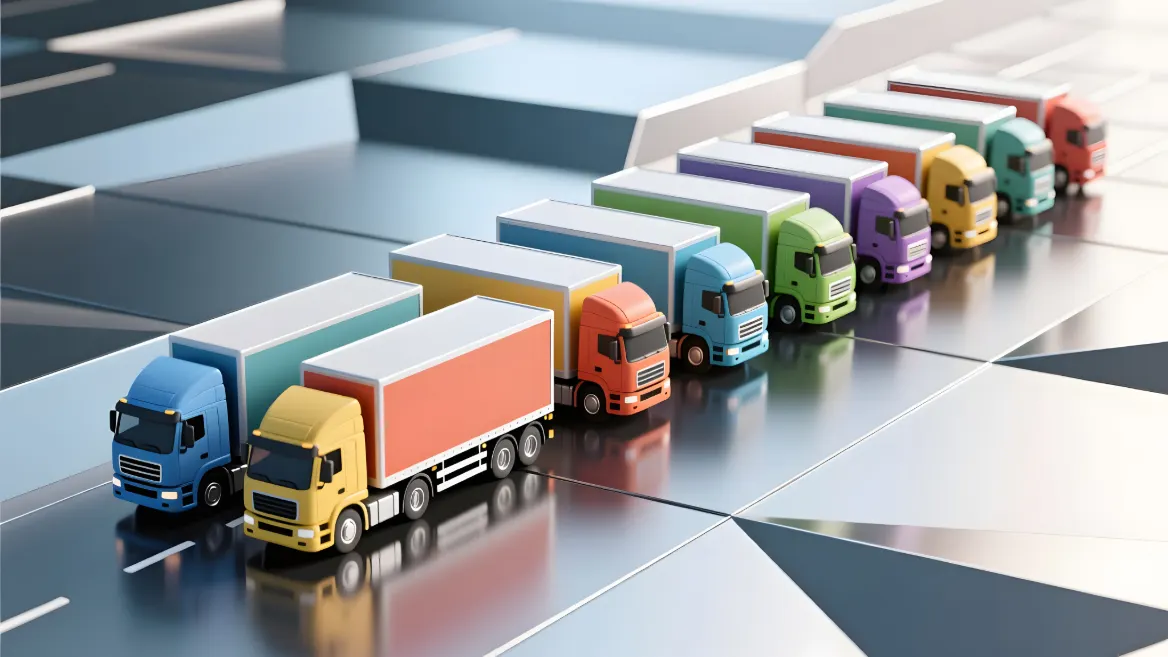Sustainability is more than just a buzzword in logistics—it’s becoming a key factor in shaping the future of the industry.
As environmental concerns grow and regulations tighten, adopting sustainable practices is no longer an option but a necessity. For haulage companies with medium to large fleets, making sustainability a priority can reduce costs, improve efficiency, and strengthen your business.
In this article, we’ll discuss why sustainability is important in logistics, how it impacts haulage companies, and the steps you can take to make your operations more eco-friendly.
What we’ll cover
Understanding sustainability in the logistics industry
Sustainability in logistics refers to practices that reduce environmental harm while maintaining operational efficiency. This can involve reducing carbon emissions, using energy-efficient vehicles, and optimising routes to minimise waste. As more customers and governments prioritise sustainability, haulage companies are under pressure to implement eco-friendly solutions.
What logistics sustainability means
At its core, logistics sustainability is about reducing the environmental impact of transport operations. This includes cutting emissions, adopting sustainable HGV fuels, and managing resources responsibly.
Sustainable logistics practices help improve fuel efficiency, reduce energy consumption, and make transport operations more efficient over time.
The growing demand for sustainable logistics
The shift towards sustainable logistics is driven by increasing customer demand for greener solutions. More businesses are looking to work with transport companies that actively reduce emissions and embrace eco-friendly technology.
By adopting sustainable practices, you position your company as a responsible and forward-thinking partner in the supply chain.
How sustainability impacts haulage companies
Sustainability isn’t just about reducing environmental impact—it can have a direct positive effect on your business operations.
Haulage companies that focus on sustainability can cut fuel costs, reduce empty miles, and improve fleet efficiency.
Reducing operational costs through sustainability
One of the most tangible benefits of sustainability is cost savings.
By adopting sustainable fuels, such as electric or hybrid vehicles, you can significantly reduce your fleet’s fuel consumption. More energy-efficient vehicles tend to have lower running costs, and telematics can help monitor fuel use more closely. This allows you to spot inefficiencies and act quickly to reduce unnecessary fuel consumption.
In addition, tools like carrier management software and telematics can optimise route planning, reducing the distance travelled and helping you avoid traffic or delays. This directly impacts fuel consumption, leading to lower overall operational costs.
The competitive advantage of sustainable logistics
Sustainability offers more than cost savings—it can also give your business a competitive edge.
Many large contractors and customers are now prioritising partnerships with companies that focus on logistics sustainability. By adopting green practices, you position your company as a responsible choice for environmentally conscious clients.
Focusing on sustainability can also help you attract contracts that require eco-friendly logistics solutions. As more tenders include sustainability criteria, having a track record of sustainable operations could help you win new business. It’s a win-win: your operations become more efficient, and you stand out from competitors.

Steps towards sustainable logistics for haulage companies
Transitioning to sustainable logistics doesn’t have to be complicated.
Haulage companies can take several steps to improve their eco-friendly practices, from using advanced technology to managing return loads more effectively.
Implementing eco-friendly technologies
Investing in eco-friendly technologies is one of the most effective ways to improve logistics sustainability.
Switching to electric or hybrid HGVs can significantly reduce emissions and improve the fuel efficiency of your fleet, especially for urban or short-haul routes. While the initial investment may be higher, the long-term savings on fuel and maintenance make it worthwhile.
Telematics integrations and carrier management tools also play a key role in reducing emissions. These tools allow you to monitor routes, fuel usage, and driver behaviour in real-time. By identifying inefficient routes or excessive idling, you can take action to reduce fuel use and cut emissions.
Over time, this leads to lower operating costs and a more sustainable operation.
Focusing on return loads and reducing empty miles
Reducing empty miles is another important step towards sustainability.
Many haulage companies experience the inefficiency of vehicles returning empty after delivering loads, wasting both time and fuel. Platforms like Haulage Exchange offer a solution by connecting hauliers with available haulage return loads.
By filling those return journeys with additional freight, you reduce unnecessary mileage, cut fuel consumption, and reduce your fleet’s overall environmental footprint. This is an easy and effective way to improve sustainability without major changes to your operations.
Why sustainability is important for the future of logistics
The push for sustainability isn’t just about improving operations today—it’s about future-proofing your business for the long term.
As government regulations tighten and customers demand greener solutions, companies that focus on sustainability will be better positioned to thrive.
Preparing for future regulations and industry standards
The logistics industry is facing increasing pressure to comply with stricter environmental standards. From emission targets to sustainable fuels requirements, the industry is evolving to become more eco-friendly. By adopting sustainable practices now, you’ll be ahead of future regulations and better prepared to meet these standards.
Additionally, FORS accreditation is becoming an important standard in the industry, recognising companies that prioritise safety, efficiency, and sustainability. Achieving this accreditation not only helps you stay compliant with current standards but also strengthens your reputation as a responsible operator.
Building a resilient and future-proof business
Sustainability isn’t just good for the environment—it’s also good for business. Companies that adopt sustainable logistics practices are more likely to thrive in the long run. By investing in eco-friendly technologies, reducing empty journeys, and improving fuel efficiency, you create a more resilient business model.
In an industry that’s increasingly focused on reducing emissions, sustainability will continue to be a driving force for growth and success.




